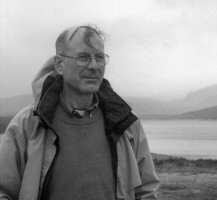About three years ago, I published my book Courage Rewarded: The Valour of Canadian Soldiers Under Fire 1900-2007, which took the history of the Canadian army from the South African War to Korea. But I felt the book really was unfinished if it did not include a chapter on Afghanistan where the Canadian military renewed itself as a combat-effective organization. I therefore had decided to publish a revised edition, in which a full chapter would be devoted to Afghanistan 2003-2011. But I couldn’t really write about Afghanistan unless I spoke to veterans who could give me a personal understanding of the mission which can’t be found from newspapers and from DND press releases (not to mention that the war diaries are sealed from public viewing). These soldiers have helped with this understanding.
These are the fourteen men who have been so helpful and whose strong dedication to duty shines through:
• Sergeant Dan Matthews, who suppressed fear and crawled forward under exploding ammunition to come to the aid of his comrades, Corporal Robbie Beerenfenger and Sergeant Alan Short, after their Iltis jeep was blown up by an IED near Kabul on 2 October 2003; he received the Star of Courage for his actions.
• Master Corporal Sean Chard, a Coyote vehicle crew leader in the Royal Canadian Dragoons, who lived through two IED strikes, the second of which seriously injured him on 7 January 2009.
• Captain David Turgeon who, as a Reserve Forces officer, was surprised to find himself appointed second-in-command of an artillery troop equipped with newly acquired M-777 guns, but eager for the mission.
• Captain Jonathan Mineault who worked on construction projects around Bazaar-i-Panjwayi in an attempt to improve the life of Afghans.
• Corporal Hal Hemming, who went out on daily patrols near Strongpoint Folad as a field engineer locating and removing IEDs, coming under insurgent fire on several occasions, ready to return on another rotation if asked.
• Private Dan Charysz who readily accepted his role as point man, one of the loneliest jobs on the battlefield, on daily patrols around Chalghowr, a countryside littered with IEDs.
• Corporal Grant Lambe who readily ran towards any fire fight, until the day he stepped on an IED near Salavat and lost his right eye.
• Corporal Sean Volmer who managed to take the attitude, as a professional soldier, that the fire fights he experienced almost every day around Combat Outpost Panjshir were just “business as usual.”
• Corporal Adam Leclerc who, as a college student volunteered for a tour in Afghanistan to experience what it was really like there, got his wishes fulfilled when he fought through several ambushes as part of a Police Operational Mentoring Liaison Team.
• Master Warrant Office Shawn Mercer who provided inspired leadership to those under him as his squadron of the Royal Canadian Dragoons lost a number of members from IED strikes in the Arghandab in 2008.
• Master Corporal Lucus Fuller who, in the line of enemy fire, helped rescue a fellow soldier who had been shot down by the Taliban while clearing a village near Pashmul, for which he received a Mention in Despatches.
• Corporal Steven Bancarz who, when his patrol was ambushed near the Taliban village of Sangasar, got hit by the back blast from a RPG launch but recovered enough to cover the fighting withdrawal the patrol and be awarded the Medal of Military Valour.
• Captain Rob Peel who fought through the summer of 2008 while mentoring troops of the Afghan National Army, finding it one of the most significant experiences of his life, and was awarded the Medal of Military Valour for his actions during a Taliban ambush.
• Master Warrant Officer Richard Stacey who provided exceptional leadership for several hours while he assisted in fighting off insurgents that ambushed a convoy attempting to return to FOB Mas’um Ghar along the Arghandab River, for which he received the Star of Military Valour.
With these fourteen men, I found my objective was achieved in being able to interview a cross section of Canadian Forces experience in Afghanistan: ranks from private to captain; infantry, combat engineer and artillery; OMLT and POMLT; some who received awards for valour and others who did their duty well although they received no such reward.
My thanks to all.








